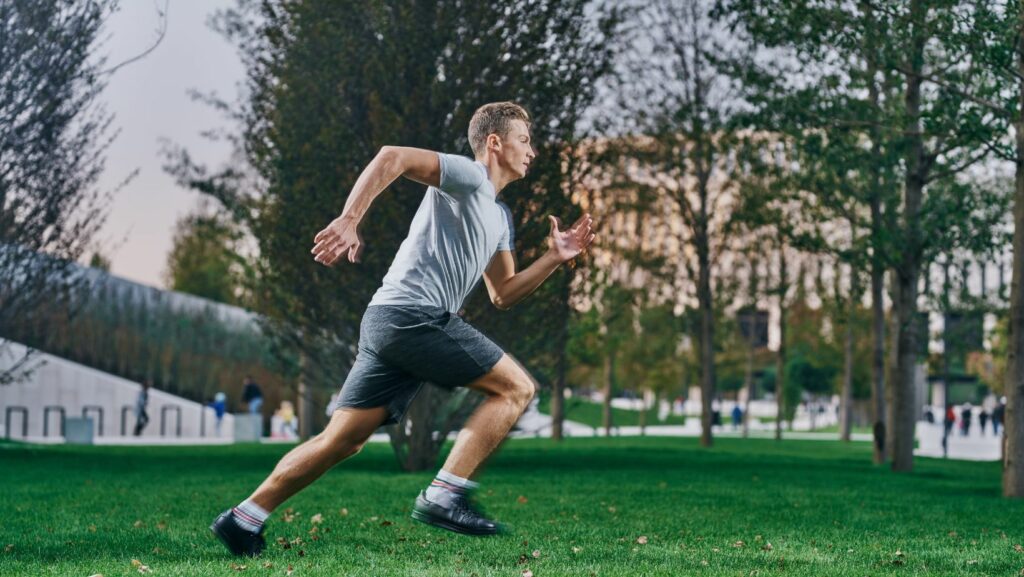Physical Health Refers To The Degree Of Functionality Of A Person’s Body.
Physical health is a crucial aspect of overall well-being, encompassing the extent to which our bodies function optimally. It pertains to the ability of an individual’s body to perform daily tasks, engage in physical activities, and maintain proper functioning of various systems. When we talk about physical health, we are essentially addressing the degree of functionality and fitness that one’s body possesses.
Table of Contents
ToggleAt its core, physical health refers to how well our bodies operate on a physiological level. It encompasses factors such as cardiovascular endurance, muscular strength and flexibility, body composition, and overall vitality. Achieving and maintaining good physical health involves regular exercise, proper nutrition, adequate sleep, stress management techniques, and avoiding harmful habits like smoking or excessive alcohol consumption.
Taking care of our physical health not only enhances our quality of life but also reduces the risk of developing chronic diseases and improves longevity. Engaging in regular physical activity can boost energy levels, improve mood and mental well-being, enhance cognitive function, promote better sleep patterns, and strengthen the immune system. By prioritizing our physical health through conscious lifestyle choices and preventive measures, we can strive towards a healthier and more fulfilling life.
So remember: Physical health is all about ensuring that your body functions at its best capacity – from staying active to eating nutritious food – it’s about nurturing your body inside out!

The Importance of Physical Health
Maintaining good physical health is crucial for overall well-being and quality of life. When we talk about physical health, we’re referring to the degree of functionality and vitality of our bodies. It encompasses various aspects such as cardiovascular endurance, muscular strength, flexibility, and body composition.
Here are a few reasons why prioritizing physical health is essential:
- Enhanced Energy Levels: Engaging in regular physical activity boosts energy levels by improving blood circulation and delivering oxygen to the muscles. It’s like giving your body a natural energy boost!
- Reduced Risk of Chronic Diseases: Leading an active lifestyle can help prevent chronic conditions such as heart disease, diabetes, and certain types of cancer. Regular exercise strengthens the immune system and improves overall organ function.
- Mental Well-being: Physical activity releases endorphins, which are commonly known as “feel-good” hormones. These endorphins promote positive mood states, reduce stress levels, alleviate symptoms of anxiety and depression, and enhance cognitive function.
- Weight Management: Engaging in regular exercise along with maintaining a balanced diet helps manage body weight effectively. Physical activity burns calories, increases metabolism, and promotes lean muscle mass development.
- Improved Sleep Quality: Regular exercise has been shown to improve sleep patterns by reducing insomnia symptoms and promoting deep restorative sleep. A well-rested body is better equipped to handle daily challenges.
- Stronger Bones and Joints: Weight-bearing exercises such as walking or resistance training help strengthen bones and maintain joint flexibility. This reduces the risk of osteoporosis and age-related joint problems.
- Increased Longevity: Studies have consistently shown that individuals who lead physically active lifestyles tend to live longer than those who are sedentary. Taking care of your physical health can add years to your life!
Remember that physical health is not just about intense workouts or extreme fitness regimes. It’s about finding activities that you enjoy and incorporating them into your daily routine. Whether it’s walking, dancing, swimming, or playing a sport, the key is to keep moving and stay active.
By prioritizing our physical health, we can unlock a world of benefits that positively impact both our body and mind. So let’s make conscious choices to nurture and prioritize our physical well-being for a healthier, happier life!
Physical health refers to the level of functioning and well-being of an individual’s body. It encompasses various factors that can have a significant impact on our overall physical well-being. In this section, I’ll delve into some key factors that affect physical health and contribute to maintaining optimal functionality.
- Nutrition: A balanced diet plays a crucial role in promoting good physical health. Consuming a variety of nutrient-rich foods such as fruits, vegetables, whole grains, lean proteins, and healthy fats provides the necessary vitamins, minerals, and energy for our bodies to function properly.
- Exercise: Regular physical activity is essential for maintaining physical fitness and overall well-being.











